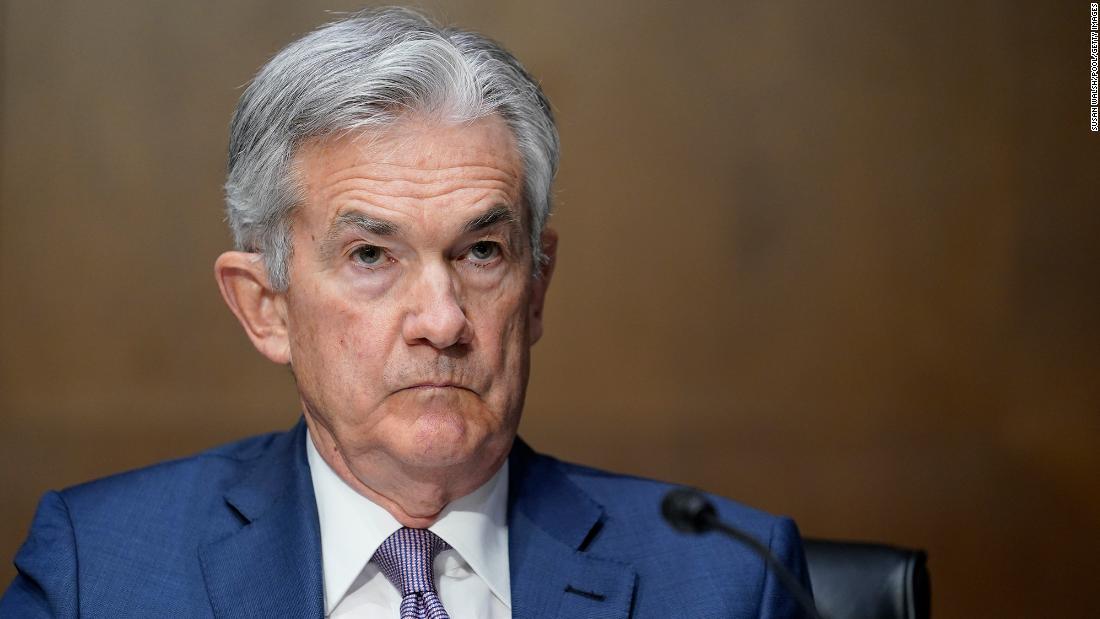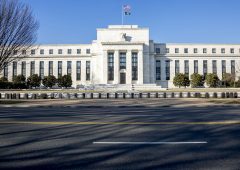Fed Poised for December Rate Cut, But Will Powell Signal a Pause in 2025?
16.12.2024 12:00 1 min. read Kosta Gushterov
Although inflation showed limited improvement in November, futures contracts for federal funds suggest a nearly certain 25 basis point rate cut at the Federal Reserve's meeting on December 17-18, according to analyst Megan Leonhardt.
While the rate cut is widely expected, there’s speculation that Fed Chairman Jerome Powell may pair the decision with a signal that further cuts could be paused in the early months of 2025.
Leonhardt emphasized that Powell’s statement might suggest the Fed will hold off on additional cuts after the December adjustment, given the complexities policymakers face in navigating the economic landscape.
Meanwhile, Goldman Sachs has also confirmed its prediction of a rate reduction this month, but it anticipates further cuts in January and March 2025, as well as potentially in June and September.
However, the bank cautioned that some Federal Open Market Committee (FOMC) members are now leaning toward a slower pace of cuts than initially expected, increasing the uncertainty regarding future decisions.
Despite current market expectations for a December rate cut, stronger-than-expected economic data in November has raised doubts about the Fed’s path in early 2025. As the market looks ahead, all attention will be on Powell’s comments and the Fed’s updated forecasts, which could provide clarity on the future direction of fiscal policy and inflation management.
-
1
U.S. PCE Inflation Rises for First Time Since February, Fed Rate Cut Likely Delayed
27.06.2025 18:00 1 min. read -
2
Key U.S. Economic Events to Watch Next Week
06.07.2025 19:00 2 min. read -
3
Gold Beats U.S. Stock Market Over 25 Years, Even With Dividends Included
13.07.2025 15:00 1 min. read -
4
U.S. Announces Sweeping New Tariffs on 30+ Countries
12.07.2025 16:30 2 min. read -
5
US Inflation Heats Up in June, Fueling Uncertainty Around Fed Cuts
15.07.2025 16:15 2 min. read
US Inflation Heats Up in June, Fueling Uncertainty Around Fed Cuts
U.S. inflation accelerated in June, dealing a potential setback to expectations of imminent Federal Reserve rate cuts.
Gold Beats U.S. Stock Market Over 25 Years, Even With Dividends Included
In a surprising long-term performance shift, gold has officially outpaced the U.S. stock market over the past 25 years—dividends included.
U.S. Announces Sweeping New Tariffs on 30+ Countries
The United States has rolled out a broad set of new import tariffs this week, targeting over 30 countries and economic blocs in a sharp escalation of its trade protection measures, according to list from WatcherGuru.
Key U.S. Economic Events to Watch Next Week
After a week of record-setting gains in U.S. markets, investors are shifting focus to a quieter yet crucial stretch of macroeconomic developments.
-
1
U.S. PCE Inflation Rises for First Time Since February, Fed Rate Cut Likely Delayed
27.06.2025 18:00 1 min. read -
2
Key U.S. Economic Events to Watch Next Week
06.07.2025 19:00 2 min. read -
3
Gold Beats U.S. Stock Market Over 25 Years, Even With Dividends Included
13.07.2025 15:00 1 min. read -
4
U.S. Announces Sweeping New Tariffs on 30+ Countries
12.07.2025 16:30 2 min. read -
5
US Inflation Heats Up in June, Fueling Uncertainty Around Fed Cuts
15.07.2025 16:15 2 min. read


